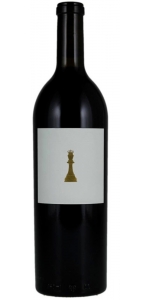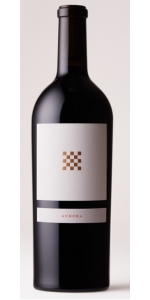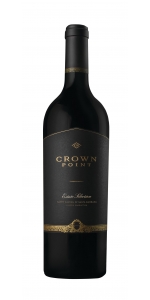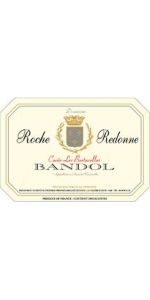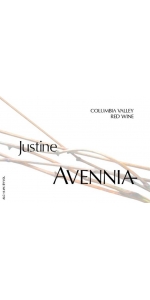Checkerboard Kings Row Red 2016
| Country: | United States |
| Regions: | California California (Napa) |
| Winery: | Checkerboard Vineyards |
| Grape Type: | Cabernet Sauvignon |
| Organic: | Yes |
| Vintage: | 2016 |
| Bottle Size: | 750 ml |
Checkerboard Kings Row Red is made from Cabernet Sauvignon, Merlot, Petit Verdot.
2019 Checkerboard Kings Row is produced from grapes grown in the Aurora Vineyard which is located in a small valley midway up Diamond Mountain on a large knoll at an elevation of 1,200 feet. The knoll projects off the mountainside, giving the vineyard full southern exposure, open light from the east and west, and protection from Napa Valley’s summer fog. Six acres are planted in the knoll’s rich, volcanic soils that are riddled with basalt cobble and loamy clay. The remaining six acres are planted in a deep gravely mix of white volcanic ash and chips of decomposed Rhyolite that were washed down from the steep, rocky crags of Diamond Mountain above. 2019 Checkerboard Kings Row is a complex wine showcasing the Bordeaux varietals grown in the Aurora Vineyard. The nose is a swirl of dark red fruits, baking spice, and sandalwood. On the palate, the fruit dominates and offers hints of dried crushed herbs, black pepper, and freshly pressed espresso. There’s a juicy core which is persistent from the approach through to the finish.
Vintners Dennis O’Neil and Steph Martin began development of Checkerboard Vineyards in 1999 and retained winemaker Martha McClellan to create a portfolio of wines reflecting the mountainside. The estate includes four vineyard sites of different elevation, exposure and soil composition, providing the foundation for a portfolio that includes Checkerboard Aurora Vineyard, Checkerboard Coyote Ridge Vineyard, Checkerboard Nash Creek Vineyard, Checkerboard Kings Row, Checkerboard Sauvignon Blanc, and Checkerboard Rose. Grapes are harvested at dawn in micro-lots and delivered steps away to the winery where clusters are sorted, discarding any blemished ones. Individual berries are hand-selected for vinification and transferred for fermentation, by hand, to Taransaud wooden tanks, stainless tanks, and individual wooden barrels.
Farming is based on long-term sustainability and includes water conservation and monitoring, permanent cover crops planted in alternating rows, and the use of entomology for pest control and the development of soils with good organic matter and microbiology. Checkerboard Vineyards is a member of Fish Friendly Farming which promotes environmentally-friendly land practices and water quality management. Aurora Vineyard is located in a small valley midway up Diamond Mountain and on a large knoll at an elevation of 1,200 feet. The knoll bulges outward, giving the vineyard full Southern exposure and open light from the East and West and protection from Napa Valley’s summer fog. Six acres are planted in the knoll’s rich, volcanic soils that are riddled with basalt cobble in a loamy red clay. The remaining six acres are planted in a deep gravely mix of volcanic ash and chips of decomposed Rhyolite that were washed down from the steep, rocky crags of Diamond Mountain above.
There's a fresh, sweet aroma to the 2016 Checkerboard Aurora Vineyard that builds excitement and anticipation for what's to come. On approach, the palate is juicy and expansive and explodes with flavors of blackberry, mulberry, dark cherry, caramel, leaf tobacco and green olive. The wine continues with a voluptuousness that's linear and constant yet lifted by natural acidity. The finish is showy, long and lingering with finely polished tannins. An exceptional vintage.
Crown Point Estate Selection is made from 75% Cabernet Sauvignon, 10% Merlot, 6% Petit Verdot, 6% Cabernet Franc, 3% Malbec.
The 2016 Crown Point Estate Selection exhibits a heady aromatic array of baking spices, ripe red and black fruits, with deep intonations of earth and minerals. The palate is elegant and bright, with appealing acids and nuanced notes of savory mocha and dried herbs. Polished and seamless, the tannins finish with a comet-like trail of textural opulence highlighted by glossy flavors of baked berry pie and warm toast. Recommended drinking window: now through 2030s.The 2016 Estate Selection is representative of all five red Bordeaux varieties. The selection process starts in the vineyard and continues on through the winemaking process: only the best lots make the final blend. All blocks were harvested & fermented separately. The individual components were blended after 12 months in barrel. Total time in 225 liter French oak barrels was 26 months.
Review:
Deeply colored, the 2016 Estate Selection checks in as 75% Cabernet Sauvignon, 10% Merlot, 6% Petit Verdot, 6% Cabernet Franc, 3% Malbec that was brought up 26 months in 75% new French oak. Deeply colored, it has a smoking good bouquet of crème de cassis, smoke tobacco, lead pencil, camphor, and hints of chocolate. This gives way to a powerful, opulent Cabernet Sauvignon that has plenty of sweet tannins, a layered, multi-dimensional texture, no hard edges, and an awesome finish. I’d happily put this beauty in a lineup of top Napa Valley Cabernet Sauvignon and blends.
-Wine Enthusiast 97 Points
There’s an impressive amount of complexity on the nose of this bottling by winemaker Adam Henkel, from crushed graphite and concentrated black strawberry to cinnamon pastry, licorice and a brush of herbs. The sip is intense, with leathery but chiseled tannins presenting flavors of charred black currant, licorice, black olive, dried flower and white pepper
-Jeb Dunnuck 97 Points
Inglenook Rubicon is made from 93% Cabernet Sauvignon 7% Cabernet Franc.
Since its inaugural vintage in 1978, Rubicon has been the Estate's premier red wine, reflecting the soul of the property and expressing Francis Coppola's wish to create a Bordeaux-styled grand wine, that is, "a wine that can please contemporary taste, but with a historical aspect [that defines] our vineyards at their zenith."
Rubicon was named after the small river crossed by Julius Caesar in 49 B.C., declaring his intention to gain control of Rome, thereby launching a civil war among opposing factions. Over time the phrase "crossing the Rubicon" has come to signify any irreversible action with revolutionary intent or the outcome of which holds great risk. True to its uncommon depth, Inglenook's Rubicon continues to be a testament to the finely tuned rendering of a risk well-taken.
2016:
After four years of drought, a winter with average rainfall was welcome, as it provided ample soil moisture for a strong start to the 2016 growing season. Average late-spring temperatures and limited precipitation minimized the risk of frost during mid-May bloom, ensuring average yields. June closed with a heat spell, slowing vine canopy growth at the ideal time. Harvest of the blocks contributing to the 2016 Inglenook Rubicon blend occurred under optimum conditions from September 6th through September 27th.
Ideal harvest conditions endowed the 2016 Rubicon with the three elements associated with a truly great wine from the Rutherford appellation: complexity, balance, and elegance. The aromas are intense and focused with top notes of creamy, sweet vanilla, and black licorice wound around a core of exquisitely ripe black cherry and crème de cassis. This refinement extends directly to the palate, where the wine is both broad and deep with sensuous, silky tannins. Supremely balanced in terms of both opulence and complexity, ripe black fruits and an ultra-smooth texture provide an impressive crescendo to a very long finish.
Review:
The 2016 Cabernet Sauvignon Rubicon is a wine of total precision and class. Translucent and energetic, with distinctly mid-weight structure, the 2016 is a wine of reserve, tension and breeding. Shy at first, the 2016 has a lot to offer, but it needs a number of years in bottle to be at its most expressive. Cedar, tobacco, licorice and wild cherry add the closing nuances.
- Antonio Galloni 97 Points
Roche Redonne Bandol Rouge Les Bartavelles is made from 95% Mourvedre and 5% Grenache.
This cuvée is named "Bartavelles" which is French for the "Rock Partridge".
The wine is quite aromatic, with boysenberry, blackcurrant, peppery and graphite notes. Ample in the mouth with a creamy structure, soft, harmonious and elegant tannins. The finish is long and juicy.
Excellent with grilled red meat or game. Also excellent with cheese
Review:
The 2016 Bandol Cuvee les Bartavelles is lush, open and inviting. Marked by hints of pencil shavings and boysenberries, this 95% Mourvèdre cuvée is medium to full-bodied, creamy textured and easy to drink. It should be consumed over the next decade. - Joe CZERWINSKI"
- Robert Parker's Wine Advocate (May 16th 2019), 90 pts
Avennia Justine Red Blend 56% Grenache, 31% Mourvèdre, 13% Syrah
Justine reflects our belief that Washington is capable of producing world class blends of grape varieties traditional to the Southern Rhone region of France. The name is inspired by one of the great heroines of recent literature, who also sprung from the imagination of the Mediterranean. Dark, seductive, complex, with a chasm of depth: The Justine is a great reflection of Avennia's mission of expression, and Washington's generous terroir.
Tasting Note: Big black cherry, blackberry, hints of orange peel, fresh herbs and loam on the nose. Plush and round on the palate. Dark earthy fruits from the Mourvedre, along with citrus high notes, mountain flowers, jasmine, and savory herbs. Balanced and complex without forgetting its hedonistic roots in the Southern Rhone.
Review:
A blend of 56% Grenache, 31% Mourvèdre, 13% Syrah brought up all in older oak, the 2016 Justine offers a great core of black fruits as well as lots of peppery herbs, earth, and classic meatiness. It looks to be a great vintage for this cuvée."
- Jeb Dunnuck (April 2018), 92-94 pts
Checkerboard Kings Row Red is made from Cabernet Sauvignon, Merlot, Petit Verdot.
"2016 Kings Row remains an expression of the Aurora Vineyard which is located in a small valley midway up Diamond Mountain on a large knoll at an elevation of 1,200 feet. The knoll projects off the mountainside, giving the vineyard full Southern exposure and open light from the East and West and protection from Napa Valley's summer fog. Six acres of the vineyard are planted in the knoll's rich, volcanic soils that are riddled with basalt cobble in a loamy red clay. The remaining six acres are planted in a deep gravely mix of white volcanic ash and chips of decomposed Rhyolite that were washed down from the steep, rocky crags of Diamond Mountain above. The 2016 vintage is a watercolor painting of swirling black, blue and red. Fresh cranberries, ripe cherries, blueberries and blackberries abound and are misted with red pepper flake, dried and savory herbs, caramel and milk chocolate bar. Natural acidity supports the density of this wine and its lengthy, lingering finish
Checkerboard Vineyards is located on the southeast facing slope of Diamond Mountain in Napa Valley. The estate includes a winery, cave and four vineyard sites, joined by a two-and-one-half mile drive spanning the valley floor to the top of the ridge. This dramatic setting is the inspiration for the distinctive, exceptional wines of Checkerboard Vineyards.
The winery is dedicated solely to the vinification of Checkerboard Vineyards wines and was built to control every aspect of winemaking.
Eight custom Taransaud French Oak Upright Casks are used to create numerous, small lots of wine from micro-harvests of each vineyard.
he estate has four vineyard sites of different elevation, exposure and soil composition.
Spring Meadows Vineyard is situated at 600 feet in elevation on a meadow surrounded by Oak, big leaf Maple and Madrone trees. The soils are rich from the neighboring woods and the site enjoys full east to west sun exposure.
Coyote Ridge Vineyard is located on a long undulating ridgeline that runs Eastward downhill from the Aurora Vineyard knoll. The vineyard blocks are perched on the hillside above Nash Creek Canyon to the South and share the same red iron oxide clay as the upper blocks of Aurora Vineyard. Though the soils are similar, the Southern and slightly Eastern exposure of Coyote Ridge, along with its lower 900 foot elevation, allows the top of the summer fog line to reach the Vineyard. This creates an entirely different microclimate and growing cycle for its vines.
Aurora Vineyard is nestled in a small valley midway up Diamond Mountain on a large knoll located at an elevation of 1,200 feet. The knoll projects off the mountainside, giving the vineyard full Southern exposure and open light from the East and West and protection from Napa Valley's summer fog. Six acres of the vineyard are planted in the knoll's rich, volcanic soils that are riddled with basalt cobble in a loamy red clay. The remaining six acres are planted in a deep gravely mix of white volcanic ash and chips of decomposed Rhyolite that were washed down from the steep, rocky crags of Diamond Mountain above.
At 2,000 feet in elevation and at the top of the Estate is Nash Creek Vineyard. The blocks rest just below the East ridge of Diamond Mountain on a steeply sloping terrace composed entirely of Rhyolite. At this elevation, winter temperatures are colder and extend into early Spring, and bud break takes place up to six weeks later than our vineyards below. By early Summer, Nash Creek Vineyard catches up and surpasses the growth of the Aurora and Coyote Ridge Vineyards. This due to the lingering daytime heat absorbed by its rocky base and the nighttime convective warmth rising from the Napa Valley below, providing nearly round-the-clock grape maturation.
Farming practices at Checkerboard Vineyards are based on long-term sustainability and include water conservation and monitoring, permanent cover crops planted in alternating rows, and the use of entomology for pest control.
- back
Paul Hobbs Coombsville Cabernet Sauvignon is made from 100% Cabernet Sauvignon
Since our inaugural release last year, this wine has quickly become one of the most compelling in their portfolio. Offering a gorgeous deep purple hue, our 2019 captivates with a bouquet of crushed blueberry, summer savory spice, and a delicate tobacco leaf note. The palate is remarkably balanced with well-integrated
tannins and fresh acidity that wraps around boysenberry and black fig along subtle notes of rosemary and a crush rock minerality, which lends tension through the long finish.
Review:
With an attention- getting purple-black hue, this astound- ing red is silky but manages to eke out teeth-grabbing, dusty black-tea tannins. A host of flavors, among them graphite, black raspberry, violets, and Worces- tershire, sends a message of intensity. Earth and soil notes are apparent, sur- rounding a mineral component within the wine's deep core.
-Tasting Panel 98 Points
Royet Rully Blanc Clos de Bellecroix is made from 100% Chardonnay.
Intense light yellow color - nose evokes ripe yellow fruit, with a hint of fresh wood and vanilla - round, gourmet palate with hints of smoke and vanilla.
Pair with white meat or fish with cream sauce, foie gras.


